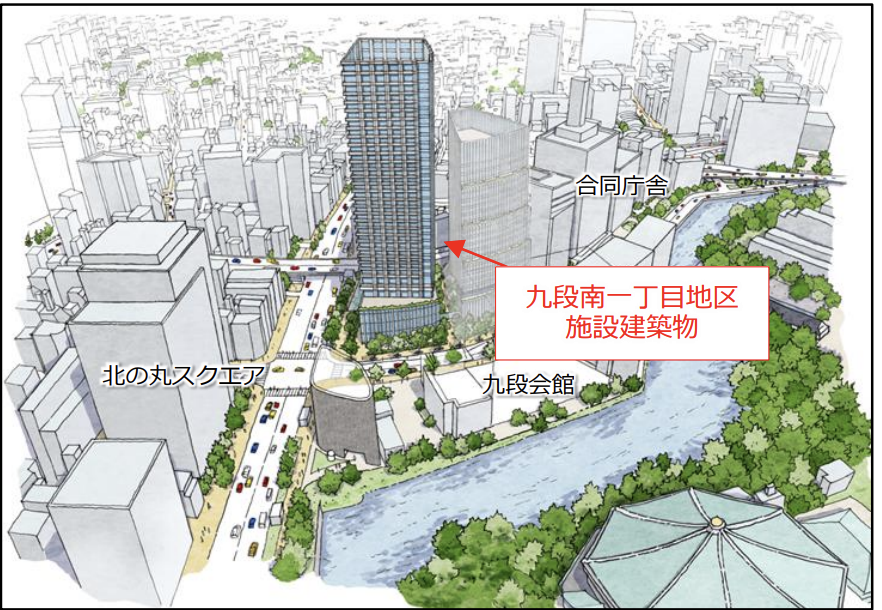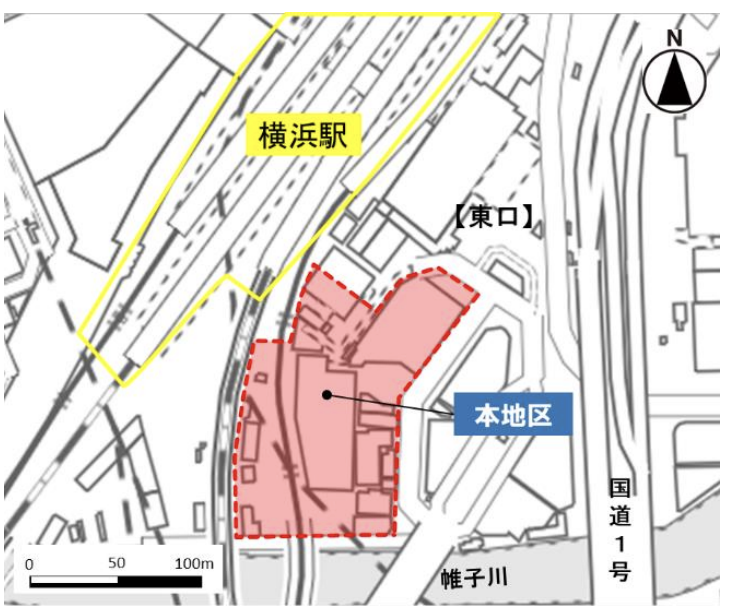In recent years, Chinese investors have shown a rapidly growing interest in the Japanese real estate market. Japan's real estate market offers numerous attractions for Chinese investors, including a stable economic environment, profitability, clear legal frameworks that protect property rights, and advantages in terms of asset succession. This article provides an in-depth analysis from a professional perspective on the appeal of Japanese real estate for Chinese investors, comparisons of major cities, successful case studies, challenges to consider when investing, and the importance of selecting a reliable partner.
Why Japanese real estate is attractive to Chinese investors
There are several clear reasons why Chinese investors are focusing on the Japanese real estate market. The main points are summarized below.
- Stable rental yields and high profitability: The Japanese real estate market has strong rental demand, and stable yields can be expected. In particular, average rental yields of around 4% can be expected in major urban areas such as Tokyo, and even higher yields in regional cities. In contrast, rental yields in major Chinese cities (Beijing, Shanghai, Guangzhou, Shenzhen, etc.) are around 2%, making it difficult to achieve stable returns domestically. Therefore, Japanese properties that can generate higher cash flow than those in mainland China are attractive. Additionally, Japan offers a supportive environment for real estate investment, with seminars and specialized consulting services available, making it easier for beginners to find suitable properties.
- Political and economic stability and transparent legal system: Japan is politically and socially stable, with a well-established legal system. Laws governing real estate transactions (such as the Real Estate Brokerage Act and the Building Standards Act) are clearly defined and enforced fairly, and information disclosure is strictly enforced during contract negotiations. This makes Japan a market where overseas investors can confidently invest their funds. The protection of property rights and the resolution of disputes are conducted through transparent processes, enabling investors to minimize risks. In fact, there are no restrictions on foreign property purchases in Japan, and transactions are conducted under the same conditions regardless of nationality. This legal transparency and stability provide significant reassurance for overseas investors, including those from China.
- Permanent ownership and asset preservation benefits: In Japan, real estate can be purchased with full ownership rights, and these rights are permanent. In China, land is state-owned, and the right to use residential land is limited to a maximum of 70 years, but in Japan, once purchased, the land can be owned permanently. This difference is a strong advantage from the perspective of asset succession and long-term asset preservation. For the wealthy, overseas real estate is an effective means of preserving assets across generations. Overseas high-net-worth individuals have a strong desire to relocate their assets overseas, and Japan, which is geographically close and offers good rental yields, has become an attractive investment destination.
- Affordable property prices and the benefits of a weak yen: Japanese real estate prices are considered affordable compared to major cities around the world. For example, the average price of a new condominium in Beijing in 2019 was approximately 72 million yen, which is higher than the average in the Tokyo metropolitan area (approximately 65.18 million yen). Furthermore, when considering that land rights are included in the price in Japan, it appears even more affordable. The recent weakening of the yen has further enhanced the appeal of Japanese real estate when viewed in terms of Chinese yuan or US dollars. In fact, foreign investors are actively increasing their purchases of Japanese real estate, and Chinese high-net-worth individuals are no exception. The ability to acquire stable assets while benefiting from exchange rate advantages is a significant attraction.
- High-quality buildings and stable operating environment: Japanese real estate, from new construction to pre-owned properties, is of high quality and well maintained. In China, there are many “landmine properties” where problems frequently arise within just a few years of construction, but in Japan, even pre-owned properties are structurally sound, and large-scale repair plans and repair reserve funds are in place, allowing for long-term ownership with peace of mind. Additionally, Japan's rental market is mature, with few disputes between landlords and tenants. In China, many properties are rented out directly by individual owners, which can lead to disputes, but in Japan, it is common for management companies to handle rental operations, ensuring stable contract terms and rules. Even if the owner does not speak Japanese, entrusting the property to a reliable management company can help avoid major issues, providing peace of mind.
As described above, the stability and profitability of Japanese real estate, the clarity of its legal system, and the benefits of asset preservation are highly attractive to Chinese investors. Reports indicate that some are shifting funds to Japan as a safe overseas asset amid concerns over the “common prosperity” policy's tightening control over the wealthy, further fueling the investment boom in Japan.
Tokyo, Osaka, Fukuoka: Investment Appeal and Market Trends of Major Cities
For Chinese investors considering real estate investment in Japan, deciding which city to invest in is an important decision. Major cities such as Tokyo, Osaka, and Fukuoka each have unique characteristics and are evaluated differently as investment destinations. Below, we compare the appeal and market trends of these cities.
Tokyo: Stability and Asset Value as a Global City
Tokyo is Japan's largest city, with the largest economy and population. It has established itself as an international financial hub and boasts a real estate market with high asset values on a global scale. The main attractions of investing in Tokyo are as follows:
- Stable demand and maintenance/increase in asset value: Real estate within Tokyo's 23 wards consistently has high demand for residential and commercial use, resulting in low vacancy risks. Properties in prime locations such as the central five wards (Chiyoda, Chuo, Minato, Shinjuku, and Shibuya) are popular among domestic and international investors, asset values remain robust. In 2024, the average price of new condominiums in Tokyo's 23 wards exceeded 110 million yen, marking the second consecutive year that prices surpassed the 100 million yen mark, indicating a heated market. One of the factors driving this price surge is the strong demand from foreign investors, with overseas buyers, including Chinese investors, increasing their purchases of downtown condominiums amid the yen's weakness.
- Stable income and reliability: Tokyo's rental market is highly stable, with yields of around 4–5% even for one-bedroom apartments in the city center. While surface yields are lower than in regional areas, this is offset by lower vacancy risks and better asset value retention. Additionally, Tokyo has the most developed infrastructure and transportation network in Japan, resulting in high property liquidity (ease of buying and selling) and making it easier to formulate exit strategies, which contributes to investment confidence.
- International City Appeal: Tokyo is an international city in every aspect, including business, education, and tourism. It attracts many expatriates and international students from overseas, including China, and there are cases where affluent individuals purchase high-end apartments in the city center as second homes. Office and commercial buildings in central areas such as Minato Ward, Shibuya Ward, Shinjuku Ward, and Chiyoda Ward are popular locations among Chinese investors. Given that Tokyo's status as an international city is unlikely to waver in the future, choosing Tokyo as a long-term investment destination can serve as a stabilizer for your asset portfolio.
Osaka: Growth Potential and Profit Opportunities
Osaka is Japan's second-largest economic city after Tokyo and the business and cultural center of western Japan. Known as the “kitchen of the nation,” Osaka is undergoing redevelopment projects and hosting international events, with further growth expected in the coming years. The investment appeal of Osaka is as follows:
- Stable economy and future potential through redevelopment: Large-scale urban redevelopment projects are underway in areas such as Umeda and Namba within Osaka City, increasing the supply of commercial facilities and offices. Additionally, the 2025 Osaka-Kansai Expo is scheduled to take place, which is expected to attract visitors from around the world and stimulate the local economy. Furthermore, plans for an Integrated Resort (IR) and other initiatives to develop Osaka as an international tourist destination are likely to boost future demand for real estate.
- Higher yields than Tokyo: Income-generating properties in Osaka City offer slightly higher rental yields than those in Tokyo, as property prices are relatively affordable. Depending on the location and property type, some single-building apartment complexes offer surface yields of around 6–8%, making them suitable for investors seeking higher returns than in Tokyo. In fact, even when viewed nationwide, the Osaka metropolitan area's real estate market ranks second only to Tokyo in terms of scale and liquidity, while maintaining relatively moderate price levels, making it an efficient investment market for Chinese investors as well.
- Abundant rental demand: Osaka is a major metropolitan area with a population of approximately 8.8 million (as of 2025), and rental housing demand is stable. In particular, the city center and surrounding areas have many universities and vocational schools, catering to a wide range of demand from young singles to families. Osaka's unique commercial culture and tourist attractions (e.g., Dotonbori, Universal Studios Japan) also generate inbound demand, expanding opportunities for revenue through short-term rentals. Osaka is also a popular destination for tourists and business travelers from China, on par with Tokyo, and there is potential for an increase in cases where people choose to relocate or stay long-term in the future.
Fukuoka: High potential as a regional growth city
Fukuoka is the largest city in the Kyushu region and has been attracting attention as a city with one of the highest population growth rates and economic growth rates in Japan in recent years. It also has an international city image open to Asia, making it an attractive investment destination for Chinese investors. The characteristics of Fukuoka are as follows.
- Growth potential unique to a young city: Fukuoka City has a population of approximately 1.6 million (designated city) but has a young average age and one of the highest birth rates among designated cities. Designated as a special zone for startup support, it is attracting attention as “Japan's Silicon Valley” due to its thriving emerging industries such as IT. In fact, Fukuoka's young population and rapid growth in emerging industries have made it a city where high returns on real estate investment are expected, attracting the attention of Chinese investors.
- Potential for price appreciation and high returns: Real estate prices in Fukuoka City are still relatively affordable compared to Tokyo and Osaka, and there is potential for further appreciation in the future. As a result, there are reports that purchases for investment purposes are increasing, with Fukuoka being referred to as a “growth city.” In terms of rental yields, apartments and buildings in Fukuoka City offer higher rates than Tokyo (some properties even exceed 7–10% surface yield), making them attractive to yield-focused investors. Additionally, the real estate market in Fukuoka has relatively high liquidity for a regional city, creating a market environment that is increasingly conducive to future exit strategies (sale).
- Gateway to Asia and convenience: Fukuoka is geographically close to major Asian cities such as Seoul, Shanghai, and Beijing, and has a well-developed network of air routes. Notably, Fukuoka Airport is only a 10-minute subway ride from the city center, making it an extremely attractive environment for investors who travel frequently overseas. In fact, there are many direct flights from mainland China and Hong Kong to Fukuoka, and the geographical and psychological proximity has led to an increase in Chinese people establishing bases in Fukuoka. The city also has a well-developed transportation network and a pleasant living environment. Compared to Tokyo and other metropolitan areas, the lower living costs and affordable prices are seen as a “good deal” by foreigners. Additionally, Fukuoka has its own unique history, culture, and rich culinary traditions, which attract foreigners considering relocation. These comprehensive attractions have led Fukuoka to be evaluated as an investment destination that is “good to live in and good to rent out.”
As described above, Tokyo offers solid stability and brand power, Osaka offers profitability and growth potential, and Fukuoka offers future potential and high returns. By selecting and diversifying cities according to investment strategies, it is possible to optimize the balance between risk and return.
Potential challenges and risks faced when investing
While Japanese real estate investment offers many attractions, there are also several challenges that foreign investors, particularly Chinese investors residing overseas, may face. It is important to understand the risks that may arise in advance and take appropriate measures.
1. Language barrier: The most frequently cited challenge is the Japanese language. Most real estate information in Japan is provided in Japanese, and property documents and contracts are also written in Japanese, including specialized terminology. Chinese investors have stated that “without understanding Japanese, it is difficult to gather property information and understand contract terms, which can lead to anxiety and misunderstandings.” The language barrier can prevent investors from finding good properties or noticing unfavorable terms in contracts. Therefore, some point out that finding a reliable real estate company or agent is the first major hurdle. The language barrier is certainly a major challenge, but as will be discussed later, it can be overcome by finding a good partner.
2. Differences in legal systems and customs: Differences in the systems and business practices related to real estate transactions also require caution. For example, in Japan, real estate brokerage fees paid to real estate brokers (brokerage companies) at the time of real estate transactions are stipulated by law, and the upper limit is usually “3% of the property price + 60,000 yen (plus consumption tax).” However, in China, the real estate brokerage fee system is not as common as in Japan, and even if fees are paid, the ratio is often lower, so many Chinese people are surprised by the high fees in Japan. It is essential to thoroughly understand such differences in costs and systems in advance. Additionally, after acquiring real estate, annual property taxes such as fixed asset tax and urban planning tax must be paid. However, if you reside overseas, there is a risk of failing to respond to tax notices from Japan and resulting in unpaid taxes. If you return to your home country while still owning the property, failure to pay taxes could lead to late payment penalties or, in the worst case, auction of the property. Therefore, it is important to seek professional advice and take appropriate measures to address issues arising from differences in systems and customs between Japan and China.
3. Purchase Procedures and Fund Transfer: While the process of purchasing real estate in Japan is transparent and secure, there are several hurdles when conducting the process from overseas. Steps that are typically conducted in person, such as property viewings and important explanations (legal explanations provided by a real estate agent prior to signing the contract), may need to be conducted online. While video calls for property viewings and remote important explanations have become possible in recent years, there may be issues with time differences and communication environments. Additionally, when transferring investment funds from mainland China to Japan, it is necessary to consider restrictions on foreign currency transfers within China (e.g., up to the equivalent of 50,000 USD per year). Many high-net-worth individuals arrange funding through Hong Kong, but this aspect of funding and remittance must also be planned carefully. On the Japanese side, financial institutions may request verification of the source of funds when receiving purchase funds via overseas remittance, so it is advisable to prepare in advance to respond promptly.
4. Property management from a remote location: When owning or renting out properties in Japan while residing overseas, daily management tasks are typically outsourced to a local property management company. By selecting a reliable management company, you can entrust them with tasks such as property inspections, tenant communication, rent collection, and arranging for the restoration of the property to its original condition upon tenant departure. However, choosing the wrong management company may result in missed reports or delayed responses, potentially leading to damage to the property's value without the owner being aware of the situation. Additionally, rental operations in Japan involve unique customs (such as handling of key money, security deposits, renewal fees, and the use of guarantor companies in case of non-payment), and unfamiliarity with these customs may make it difficult to make appropriate decisions. Even for owners located far away, actively engaging in management by regularly receiving reports on the property's operational status and financial performance, and seeking expert opinions when making important decisions, is key to success.
5. Market Risk and Reputation: Finally, we will touch on market-specific risks and reputation. While the Japanese real estate market is generally stable, certain property types carry risks. For example, downtown tower mansions, which have become popular in recent years, are attractive investment targets due to their expected increase in asset value. However, there are also concerns that they may be overpriced due to high maintenance and repair costs. In fact, among Chinese investors, warnings such as “tower mansions are huge landmines (enormous risks)” have spread, highlighting the need for caution when investing in such properties. Additionally, concerns about “foreign capital acquiring Japanese land” have been discussed in the media in recent years. As a result, laws requiring notification for the sale of land deemed strategically important for national security have been enacted in some regions. However, for ordinary residential or commercial properties, foreign investors are not subject to restrictions on property rights, and there is no need for excessive concern as long as the investment activities are legitimate. Nevertheless, to avoid friction with local communities, investors are encouraged to respect local rules and customs and respond sincerely.
Given these challenges, it is clear that Chinese investors seeking to succeed in real estate investment in Japan must prioritize appropriate information gathering and expert support. The next chapter will provide detailed guidance on how to find reliable partners (brokerage firms and management companies) and the importance of doing so.
Key points for finding a reliable Japanese real estate partner
In order to overcome the challenges mentioned above and invest in real estate in Japan with peace of mind, it is extremely important to find a real estate company or management company that can be a reliable partner in the local area. The right partner will act as the investor's eyes and hands, supporting smooth transactions and stable operations. The following is a summary of key points and precautions for Chinese investors when selecting a partner in Japan.
1. Multilingual support and communication skills: To overcome language barriers, choosing a real estate company that can communicate in Chinese or English is the most efficient approach. In recent years, real estate brokerage firms offering multilingual services for foreign investors have emerged in Japan. Companies that can provide property introductions and contract procedures in Chinese will ensure peace of mind even in situations where specialized terminology is used. However, in addition to language support, it is also important to confirm whether the company can communicate in a polite and timely manner. Check how quickly they respond to inquiries, how clearly they answer questions, and whether they have a system in place for remote meetings. Since email and online calls are the primary means of communication for remote investments, a company with a smooth communication system is an important factor to consider.
2. Verify track record and expertise: When selecting a partner, it is also essential to research the company's track record and expertise. Consider whether they have extensive experience in brokerage for high-net-worth properties, experience in transactions with foreign clients, and sufficient expertise and know-how in property management. Basic checkpoints include the real estate brokerage license number (the younger the number, the more times it has been renewed, indicating longer experience) and registration for rental management services. Additionally, it is important to verify whether the company has a dedicated department to conduct pre-contract due diligence (property investigation) and contract review. Having professionals thoroughly review contract documents can help prevent oversights and unforeseen risks.
3. Customer-centric approach and transparency: Unfortunately, some real estate companies prioritize their own interests and engage in aggressive sales tactics. Therefore, it is advisable to choose a company that prioritizes a “customer-first” approach and provides impartial and fair proposals. For example, some companies explicitly state that they prioritize the customer's interests and do not engage in aggressive sales tactics. Specifically, you can distinguish such companies by whether the staff honestly explains both the advantages and disadvantages, including risks, and whether they provide alternative options with proper explanations when the property selection does not align with your preferences. Additionally, ensure that fees such as commissions and management fees are clearly explained, and that the contract terms and operational plans are disclosed transparently. Reliable companies will answer any questions you have thoroughly and adopt a stance that encourages you to ask questions without hesitation, such as, “Please don't hesitate to ask if you have any questions or concerns.” If the representative answers your questions thoroughly, you can feel confident in building a long-term relationship with them.
4. Availability of one-stop services: From purchasing investment real estate to getting rental operations up and running, there are many steps involved, including property search, financial planning, contract signing, handover, and rental management. A company that offers one-stop support for all these steps can be a great asset. If a dedicated representative handles both rental and sales consistently, communication will be smooth. Additionally, some companies have their own rental management department and can provide high-quality management services at low costs. If you can consult with them about post-purchase management, you can receive advice from the property selection stage that takes into account long-term operational plans. For example, they can propose renovation strategies to increase rent by considering tenant needs and surrounding market conditions, which are proposals that can only be made by considering management in the long term. On the other hand, if a company only handles purchase brokerage and does not provide after-sales service, there is a risk of having to find a separate management company after purchase or of insufficient information handover. By choosing a partner that offers a wide range of services under one roof, investors can reduce their own burden.
5. Reputation and recommendations from other investors: Finally, the company's reputation and feedback from other users can also be helpful. If you know someone who has purchased Japanese real estate, it's a good idea to ask them about their experience with a particular agent. Even without a direct referral, you can gauge a company's reputation through online reviews or case study articles. For example, while Japan's largest investment property information site, “Rakumachi,” does not feature reviews where users evaluate real estate companies using their real names, it does include column articles detailing specific approaches taken when contacting companies. One Chinese investor mentioned that through Rakumachi, they contacted multiple real estate companies, received various proposals including off-market properties, and gradually built trust with each company, eventually being introduced to properties closer to their ideal. As such, it is important to compare and evaluate multiple companies rather than focusing on just one. Through this process, you can assess the quality of their responses and compatibility, which will help you identify a trustworthy partner in the end.
By keeping the above points in mind and searching for a partner carefully and proactively, you will be able to find a reliable ally in Japan. Some say that knowledge and choosing the right partner are the most important factors for successful real estate investment. By working hand in hand with the right partner, you will be able to overcome language and distance barriers and make safe and secure real estate investments.
The value that companies such as INA&Associates Inc. can offer
We have discussed the importance of having a reliable partner, but to give you a better idea of the specific value they can provide, we would like to introduce INA&Associates Inc. as an example. INA&Associates is a real estate consulting company headquartered in Osaka with offices in Tokyo and Kanagawa, and is equipped to provide services in Japanese, English, and Chinese. They handle a wide range of properties, from luxury apartments for high-net-worth individuals to single-building income-generating properties, and also offer specialized services for foreign investors.
- One-stop comprehensive services: INA&Associates provides both real estate brokerage (real estate distribution business) and property management (real estate management business) in-house. From property introduction to contract signing, post-purchase rental operations, and building management, clients can receive one-stop support, making it highly convenient for overseas investors. In fact, we have a dedicated team member assigned to each client, ensuring that the same person handles all aspects of the process, whether it be leasing, sales, or investment, enabling smooth communication. This provides significant added value by streamlining complex procedures through a single point of contact.
- Customer First and Advanced Expertise: Real estate is a highly specialized field that requires knowledge and experience. We are committed to providing accurate advice from a professional perspective and ensuring peace of mind and safety through efficient and transparent services that leverage the latest IT technology. For example, we have introduced a system where AI quickly picks properties that match your desired conditions, and our representatives make the best proposals, including off-market properties. This increases the likelihood of finding a better property from a wide range of options. Additionally, our specialized research team thoroughly investigates property defects and legal issues, while contract drafting and review are handled by a dedicated department, ensuring the safety of transactions. At every stage of the real estate transaction, professionals are involved, conducting comprehensive verification and proposing the best solutions from a neutral and impartial perspective. This combination of advanced expertise and a customer-centric approach is a highly reassuring feature for foreign investors.
- Low-cost, high-quality management: In rental management, the capabilities of the management company directly affect profitability. INA&Associates offers a unique brand (INAA Rental Management) that boasts “low-cost, high-quality rental management services.” By leveraging technology to improve efficiency, we have achieved management fees that are lower than traditional rates while maintaining a system that ensures thorough tenant support and building maintenance. For example, we can handle inquiries from tenants in multiple languages, provide swift responses to issues, and conduct thorough regular inspections, ensuring peace of mind for owners even if they are located remotely. The management and brokerage departments work together to ensure speedy tenant placement (leasing) and minimize vacancy periods. For investors, reducing concerns about rental management (such as delinquencies, vacancies, and repairs) and supporting stable rental income is a significant value.
- Human Resources Network and Consulting: In addition to real estate, the company also engages in human resources introduction and consulting services, possessing a wide network and expertise centered on real estate. When advancing real estate investment, there are situations where it is necessary to collaborate with professionals such as tax accountants, judicial scriveners, and architects. INA can introduce and coordinate a team of experts on a one-stop basis.
As described above, comprehensive real estate service companies can serve as reliable partners for foreign investors. By combining specialized knowledge of the Japanese market with the latest technology, investors can efficiently and safely manage Japanese real estate from their home country. For Chinese investors in particular, partnering with a company that offers language support and cultural understanding can significantly reduce stress and risk throughout the entire investment process.
Conclusion: The Future of Japanese Real Estate Investment and the Importance of Partnerships
The Japanese real estate market is an extremely attractive investment destination for Chinese investors due to its stability and profitability. Each major city offers unique investment opportunities, and many Chinese investors have already successfully built their assets in Japan. However, there are also challenges to overcome, such as language and institutional differences. The key lies in accurate information on the latest market trends and cooperative relationships with reliable local partners.
Fortunately, there are an increasing number of real estate companies in Japan that specialize in supporting foreign investors. By establishing appropriate partnerships, Chinese investors can smoothly manage real estate investments in Japan while remaining in their home country and enjoy the benefits. In the business world, risk management and trust are often cited as the keys to success, and the same applies to real estate investment. By working hand in hand with professionals who possess extensive expertise, investors can make bold investment decisions even in a foreign country, all while operating within a safety net.
The Japanese real estate market will continue to be influenced by inbound demand, urban redevelopment, and international circumstances, but its strengths, such as transparent legal systems and a mature market infrastructure, will remain unchanged. It is entirely possible that Japanese real estate will become a core part of the long-term asset portfolios of Chinese investors by fully leveraging these strengths. If potential demand is translated into actual investment, the real estate business will serve as a bridge between Japan and China and continue to grow.
Finally, we hope that the insights and examples discussed in this article will serve as a useful reference for Chinese and other overseas investors seeking to understand the Japanese real estate market and chart a path to success. With the two pillars of Japan's stable real estate market and reliable local partners, we encourage you to leverage these assets for long-term wealth creation and business growth.

Daisuke Inazawa
Representative Director of INA&Associates Inc. Based in Osaka, Tokyo, and Kanagawa, he is engaged in real estate sales, leasing, and management. He provides services based on his extensive experience in the real estate industry. Based on the philosophy that “human resources are a company's most important asset,” he places great importance on human resource development. He continues to take on the challenge of creating sustainable corporate value.

.png)













